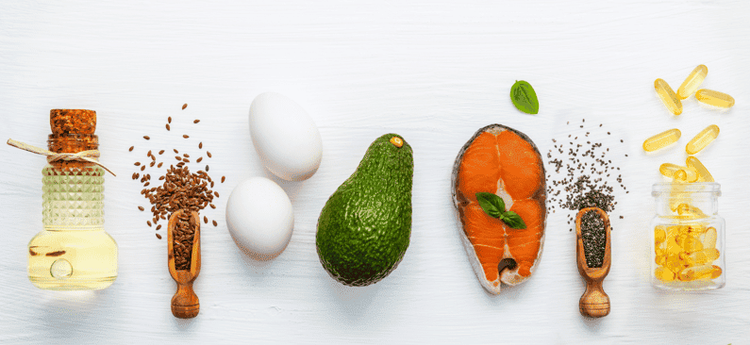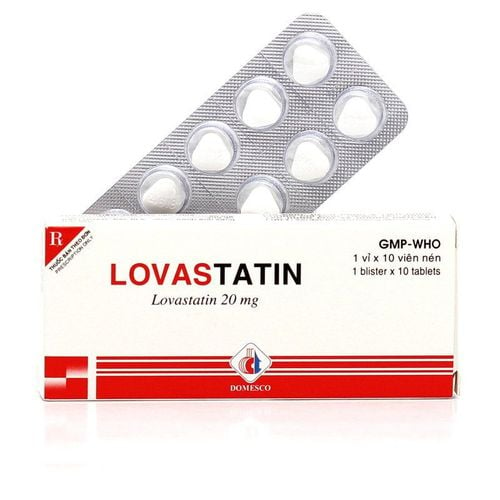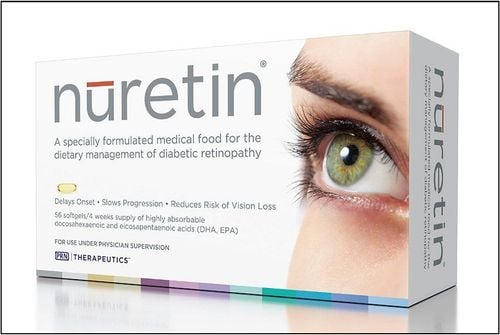This is an automatically translated article.
For decades, we used to avoid foods high in fat and cholesterol because of the misconception that eating foods high in cholesterol and fats can increase the risk of various diseases.1. Eating fat leads to weight gain
A common dietary thought is that eating foods high in fat makes you gain weight. Despite the fact that eating too many macronutrients, including fat, also makes you gain weight. Consuming high-fat foods as part of a healthy, balanced diet does not lead to weight gain. Conversely, consuming high-fat foods can help you lose weight and keep you satisfied between meals.
In fact, many studies have shown that eating foods high in fat, including eggs, avocados, nuts, and full-fat dairy, can help with weight loss and prolong feelings of fullness. Furthermore, high-fat diets, including ketogenic and low-carb, high-fat diets, have been shown to promote weight loss.
Of course, consuming highly processed foods that are high in fat, such as fast foods, sugary baked goods and fried foods, can increase your risk of weight gain.
2. Foods high in cholesterol are unhealthy
Many people consider foods high in cholesterol, including eggs, shellfish, organ meats, and full-fat dairy to be unhealthy. Despite the fact that some foods are high in cholesterol, such as ice cream, fried foods, and processed meats, should be limited in any healthy diet. Most people don't need to avoid nutritious, high-cholesterol foods.
In fact, many high cholesterol foods are packed with nutrition. For example, egg yolks are high in cholesterol and also contain many important vitamins and minerals, including B12, choline, and selenium, while high-fat, high-cholesterol yogurt is packed with protein and calcium.

Lòng đỏ trứng có hàm lượng cholesterol cao và nhiều dưỡng chất quan trọng
Certain types of cholesterol are essential for health. Your body needs cholesterol to perform important jobs, such as producing hormones and building cells.
3. Saturated fat causes heart disease
While this topic is still hotly debated among healthcare professionals, recent research shows no consistent link between saturated fat intake and heart disease. It is true that saturated fat increases well-known heart disease risk factors, such as LDL (bad) cholesterol and apolipoprotein B.
However, saturated fat intake tends to increase the amount of large LDL particles, fine, but reduced the amount of smaller, denser LDL particles associated with heart disease. Plus, research has demonstrated that certain types of saturated fat can increase heart-protective HDL cholesterol.
In fact, many large studies have not found a consistent association between saturated fat intake and heart disease, heart attack, or heart disease-related death. However, more well-designed studies are needed.
Remember that there are many types of saturated fat, all of which have different health effects. Nutritious foods that are high in saturated fat like full-fat yogurt, unsweetened coconut, cheese, and dark poultry can certainly be included in a healthy, well-rounded diet.
4. Fat in food and cholesterol should be avoided during pregnancy
Pregnant women are often advised to avoid foods high in fat and cholesterol during pregnancy. Although many women think that following a low-fat diet is best for the health of themselves and their baby.
In fact, the need for fat-soluble nutrients, including vitamin A and choline, as well as omega-3 fats, increases during pregnancy. In addition, the fetal brain, which is mainly composed of fat, needs dietary fat to develop properly. Docosahexaenoic acid (DHA), a fatty acid concentrated in fatty fish, plays an important role in fetal brain and vision development. Low maternal blood DHA levels can lead to impaired neurodevelopment in the fetus.

DHA là một loại axit béo có trong một số loại thực phẩm
5. Eating fat increases the risk of diabetes
Many dietary patterns recommended for the treatment of type 2 diabetes and gestational diabetes are low in fat. This is due to the misconception that consuming dietary fat can increase the risk of diabetes.
Although consuming certain foods high in fat, such as trans fats, fatty baked goods and fast food, can actually increase the risk of diabetes. Research has shown that other high-fat foods can protect against its development. For example, fatty fish, full-fat dairy, avocados, olive oil, and nuts are high-fat foods that have been shown to improve blood sugar and insulin levels and potentially protect against cancer. development of diabetes.
While some evidence suggests that a high intake of saturated fat may increase the risk of diabetes, recent studies have found no significant association. A 2019 study in 2,139 people found no association between consuming animal and vegetable fats or synthetic fats and risk of type 2 diabetes. The most important factor in reducing risk The risk of diabetes is the overall quality of the diet, not the breakdown of macronutrient intake.
6. Healthy Margarine and Omega-6 Rich Oils
We often think that consuming vegetable oil products like margarine and canola oil in place of animal fats is better for health. However, based on recent research results, this may not be the case. Margarine and some vegetable oils, including canola and soybean oils, are high in omega-6 fats.
Although both omega-6 and omega-3 fats are essential for health, modern diets tend to be too high in omega-6 fats and too low in omega-3s. An imbalance between omega-6 and omega-3 fat intake has been linked to increased inflammation and the development of adverse health conditions. In fact, a higher ratio of omega-6 to omega-3 has been linked to health conditions such as mood disorders, obesity, insulin resistance, increased risk factors for heart disease, and mental decline. .

Dầu giàu Margarine và omega-6 trong thực vật tốt cho sức khỏe
Canola oil is used in many vegetable oil blends, butter substitutes and low-fat sauces. Although it is considered a healthy oil, studies show that its intake can have harmful effects on many aspects of health. For example, human studies indicate that canola oil intake may be associated with increased inflammation and metabolic syndrome, a group of conditions that increase the risk of heart disease.
Additionally, research observed that replacing saturated fats with omega-6-rich fats is unlikely to reduce heart disease and may even increase the risk of heart disease-related death.
7. We all react to dietary cholesterol in the same way
About two-thirds of the population have no response to large amounts of dietary cholesterol and so-called compensators or antihypertensives.
In addition, a small percentage of the population is sensitive to dietary cholesterol and experiences a much larger increase in blood cholesterol after eating foods rich in cholesterol.
However, research shows that, even in high responders, the LDL-HDL ratio is maintained after eating cholesterol, meaning dietary cholesterol is unlikely to lead to changes in blood levels Blood lipid levels increase the risk of developing heart disease. This is due to adaptations taking place in the body, including increased cholesterol removal, to excrete excess cholesterol and maintain healthy blood lipid levels.
Despite this, some studies have shown that people with a family history of hypercholesterolemia, an inherited disorder that can increase the risk of heart disease, decrease their ability to remove excess cholesterol from their blood. body.
Reaction to dietary cholesterol is individualized and can be influenced by many factors, especially genetics. It is best to speak with a health care professional if you have questions about your tolerability of dietary cholesterol and how that might affect your health.
8. High-fat foods are unhealthy
High-fat foods and even foods high in nutrients are often lumped in the bad food category. This is unfortunate because many high-fat foods provide vitamins, minerals and antioxidants and can help keep you satisfied between meals, aiding in keeping a healthy body weight. For example, full-fat dairy, egg yolks, poultry, and coconut are high-fat foods that are often shunned by people when trying to lose weight or simply stay healthy even though these foods have Contains nutrients that the body needs to function optimally.
Thịt gia cầm là một trong những thực phẩm giàu chất béo
Of course, eating too much of any food, including the foods above, may not cause weight loss. However, when they add to your diet in a healthy way, these high-fat foods can help you reach and maintain a healthy weight while providing an important source of nutrients. In fact, eating high-fat foods like eggs, avocados, nuts, and full-fat dairy can help with weight gain by reducing hormones that promote hunger and increase feelings of fullness.
9. Fat-free products are a smart choice
If you go to the supermarket, you will most likely discover a multitude of fat-free products, including salad dressings, ice cream, milk, cookies, cheese and chips.
These items are often marketed to people who want to reduce calories from their diet by choosing foods with lower calories.
While low-fat foods may seem like a smart choice, these foods are not healthy in general. Unlike foods that are naturally fat-free, like most fruits and vegetables, processed fat-free foods contain ingredients that can negatively affect body weight, metabolic health, and overall health. metabolism, etc.
Despite having fewer calories than regular fat counterparts, fat-free foods are often much higher in added sugars. Consuming large amounts of added sugars has been linked to the progression of chronic conditions like heart disease, obesity, and diabetes. Additionally, eating foods high in added sugars can negatively affect certain hormones in your body, including leptin and insulin, causing you to consume more calories overall, which can ultimately lead to weight gain.
Furthermore, many fat-free products contain preservatives, artificial food dyes, and other additives that many people prefer to avoid for health reasons.
Instead of trying to cut calories by choosing highly processed fat-free products, enjoy small amounts of nutritious sources of total fat in healthy meals and snacks overall.

Bạn có thể nhờ đến sự hỗ trợ từ các chuyên gia y tế dinh dưỡng khi cần thiết
Despite the fact that some foods are high in fat and high in cholesterol, such as fast foods and fried foods, that should be limited in any healthy diet, many foods are rich in fat. Nutrition can and should be included in healthy diets. It is important to note that humans do not consume macronutrients such as fat in isolation, they eat foods containing different types and ratios of macronutrients.
If you have a need for consultation and examination at the Hospitals of the National Health System, please book an appointment on the website for service.
Articles refer to sources: cdc.gov, healthline.com, hsph.harvard.edu
Please dial HOTLINE for more information or register for an appointment HERE. Download MyVinmec app to make appointments faster and to manage your bookings easily.













